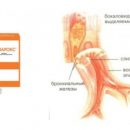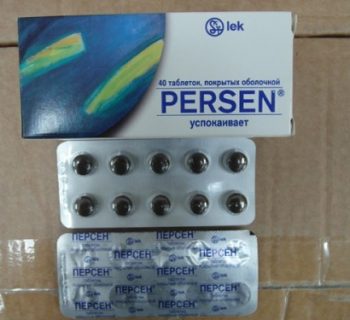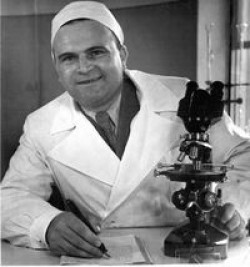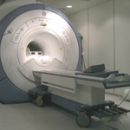So what is this drug - warfarin?
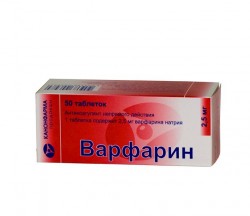
Warfarin refers to the group of anticoagulants - reducing drugs (coagulation) of blood.
Blood coagulation - a complex multistage process, normally aimed at stopping blood loss during injury by blocking damaged blood vessels - thrombus. However, in some situations and diseases, the blood closures are formed without traumatic damage and cause a circulatory disorder (or complete ceiling blood flow, if a large, trunk vessel) in the organ or part of it. If such a situation occurs in brain vessels - then it is a stroke, in the heart - infarction. Often, the thrombids are not formed in arteries at high speed of blood flow, but in veins (for example, when varicose sickness, thrombophlebitis), where the speed of blood is less, then «Open» and transferred above, in vital organs. In this case, doctors talk about thromboembolism.
As you know, the best treatment is prevention. Warfarin is prescribed just for the prevention of hazardous thrombosis and thromboembolism: heart attacks, Insults, pulmonary artery thromboembolism (TEL) and T.NS.
Diseases in which you need to take warfarin
- Cleaning arrhythmia (ma). At the same time, the rhythm heart impaired (namely the left atria) is reduced not so effectively, as with normal, sinus rhythm, and in some of its sites, most often in the so-called left atrium ear, it is formed, and then blood closures. Overlooking, these thrombles fall with blood current straight in the brain. Strokes occur in 20% (and this is every fifth!) patients with ma who did not accept anticoagulants.
- After implantation of artificial valves in the heart. Although the material of the artificial valves is selected the most neutral, after all, it is an object alien to the body, and clomes can be formed on it. Pick up, they will also get into the brain.
- After installing stent In the coronary arteries about the ischemic heart disease.
- Antiphospholipid syndrome. With this autoimmune disease in the body, special antibodies are formed, facilitating among other things, increased thrombosis in veins and, less likely, arteries.
- Varicose disease lower limbs with thrombophlebitis, especially deep veins.
In this situation, Warfarin is appointed temporarily, at the time of exacerbation. Troms from the veins of the lower extremities fall into the pulmonary artery - TAL develops. If the clot is large, it clogs a large artery, it leads to a shutdown of a significant part of the lung and shock.
The mechanism of action of warfarin
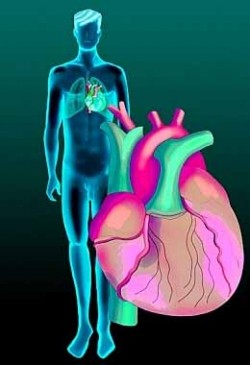
Reception Warfarina prevents the formation of blood clots in people with a high risk.
For the formation of blood clot, special proteins are needed - coagulation factors. Part of these proteins is formed in the liver using vitamin K. Warfarin blocks the effect of vitamin K and thereby slows down the process of coagulation and prevents the formation of blood clots.
How to take warfarin?
In one tablet warfarin - 2.5 mg. There is quite a difficult moment of recording dose. It is strictly individual for every person. No two identical people and no «Middle» Doses of Warfarina. The selection can be carried out by a doctor both in the hospital and outpatient, and this process requires an active understanding of the purpose of treating and participating from the patient.
And the purpose of receiving warfarin is to increase the duration of your life in good quality.
Usually start with 2 tablets (5 mg). This drug must be taken at the same time of the day (better than the evening) and do not miss the reception.
How to control the effectiveness of treatment?
Unfortunately, it is impossible to rely on your sensations, laboratory control is needed. This means that you need to take blood test for clotting. Doctors now use such an indicator as MNO (international normalized attitude). Despite the name, nothing «scary» No - this is the time of blood coagulation, with amendment on the sensitivity of reagent.
When receiving warfarin there is so-called «Therapeutic corridor» - From 2 to 3 or 3.5. in some cases. This corridor must be adhered to: thereby ensures the maximum efficiency of the drug and the minimum risk of side effects. What exactly should you stick to you - the doctor will solve.
With a decrease in MNo below 2 - no complications, but no use, the thrombus will be formed, t.E. Reception of warfarin is nonsense. If there will be no higher than 3.5-thrombov, but the coagulation is oppressed too much and the danger of complications arises.
What complications can be?
First of all, this is the danger of bleeding. Strong, dangerous bleeding develop rarely, usually when the patient does not control regularly or mistakenly takes the amount of the drug, or it has hereditary enzyme changes (their weakness), destroying warfarin.
It is necessary to be attentive to yourself and it is worth consulting with the doctor if you feel significant changes in well-being.
What should alert?
- The bleeding of the gums when cleaning the teeth;
- the formation of significant bruises with minimal impact or for no reason;
- an increase in the duration and intensity of menstruation;
- stomach ache;
- pink urine color;
- vomiting, similar to coffee thick;
- black cabin colors;
- nose bleeding;
- Dizziness, violation of vision, weakness in the limbs, severe heartbeat.
When these symptoms appear, consult a doctor! Remember: you need to hold many «Corridor», deviations and to that and on the other side can be dangerous!
Categories of patients who have risk of bleeding
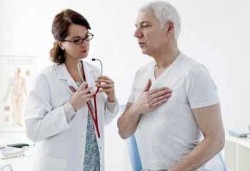
- age older than 65 years;
- having in the past bleeding;
- undergoing stroke;
- Hypertensive;
- with chronic liver and kidney disease.
How often must be controlled by many?
At the beginning, when selecting a dose, you will have to often donate blood: every 2-3 days, since the effect of warfarin is developing in two-three days, reaching a maximum for about 5 days. If within 2-3 measurements, many remains within your target value, then the dose can be considered selected. In the future, you will donate blood every 2 weeks, then once a month. Unfortunately, such frequent visits to the clinic - the urgent need.
There are portable devices for self-definition of many at home, similar to glucometters, - «Coagule». Of course, it is much more convenient, but these devices are quite expensive, within 10-15 thousand rubles. The accuracy of measurement is high.
What else to keep in mind?
MH - an indicator prone to oscillations, even if you take a designated number of tablets regularly and on time. Many factors affect its level: diet, alcohol, liver and kidney function, reception of other drugs.
- Diet. Here is the main importance of vitamin K with food. Vitamin K in large quantities is contained in products of plant origin: all kinds of cabbage, green tea, spinach, dill, vegetable oils, legumes, etc. Increasing the share of these products in the diet can weaken the action of warfarin and require a dose correction.
- Alcohol. A significant simultaneous alcohol flow enhances the action of warfarin.
- Liver and kidney disease. Chronic diseases with impaired liver, kidney function, with deficiency of these organs (increase in transaminase 3 or more times, creatinine above 200 μmol / l) affect the destruction and excavation of warfarin. It can linger in the body longer than normal, so it may be necessary to reduce the dose.
- Interaction with other medicines. There are quite many drugs affecting the Pharmacokinetics of Warfarin.
Enhance the action of warfarin:
- Non-steroidal anti-filling agents (diclofenac, ibuprofen, aspirin);
- Antibiotics (Tetracycline, metronidazole, cephalosporins, erythromycin, etc.);
- Antiarrhythmics: County, amiodaron;
- Blockers proton pumps (omeprazole, pantoprazole, etc.).
Reduce the effect of warfarin:
- Antacids (Almagel, Sukralfat and T.NS.);
- sedatives;
- Cytostatics.
Bada and vegetable preparations also affect the action of warfarin in one direction or another.
Be sure to consult your doctor if there is a need to receive the above or other drugs!
Contraindications to warfarine
- Hemorrhagic stroke;
- Allergy to the drug;
- active bleeding;
- a significant decrease in blood platelets and other cells;
- aggravation of ulcerative disease, portal hypertension, liver and renal failure, dementia, severe damage to the central nervous system, constant reception of NSAIDs, vascular aneurysms are relative contraindications to the appointment of warfarin, t. E. The question of its appointment is determined by the vital necessity.
In conclusion, we can say that Warfarin is a drug that requires attentive and responsible relationships, and it may be a little troublesome. But warfarine is a gold standard (and economically affordable!) treatment of thromboembolic diseases and with us, and abroad, he saved a lot of lives. When appointing warfarin, the number of heart attacks, strokes, TEL decreases by 63-75%. And for the sake of this a little «obey» with him.
be healthy!

